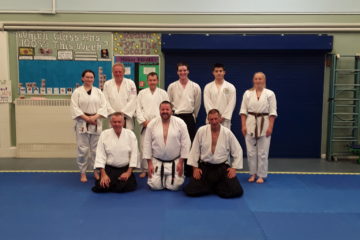It is just common sense that if you train more you will get better at what you are doing. However, as with many things in life, it isn’t as simple as that. It is easier for me to give examples when the more training you do doesn’t lead to improvements, such as:
If you only ever run 2 miles at 10 minutes a mile pace twice a week you won’t be able to run 4 miles at that pace or 2 miles at 8 minutes a mile no matter if you try running 4 times a week. The reason for that is because you are not pushing yourself to improve and your body simply becomes more comfortable with running 2 miles in 20 minutes. That’s a good example of a purely physical exertion. If you want to be able to run further or faster you have to try running further or faster.
It gets more complicated when whatever you are doing requires skill as well as physical ability. Another example would be practicing taking penalties. If you practice taking penalties a lot against your club keeper you will get very good at them on the practice ground. However, it doesn’t mean you can cope in front of a big crowd and a much bigger and quicker keeper. It also means you won’t get any better at taking free kicks let alone heading goals from a fast cross. That’s because those parts of the game are more difficult and require more skill and practising penalties won’t help with that.
What I am getting at is that if you want to get better at something you need to do it lots, but you also need to push yourself by trying to do things that are more difficult to achieve. In terms of physical exertion, you could try to speed up your techniques and say challenge yourself to do so many in a minute and the next week try to beat that score.
Improving your skills though, once you have mastered a technique, is not so simple.
Basically you need to make things harder for yourself. We have been doing that at the club for quite a few months now. The things we have been trying include:
Walking up to the pad in padwork rather than being stationary (and maybe doing some other techniques on the way);
Moving rather than stationary pads;
Multiple pads;
Being attacked but not knowing what the attack shall be;
Breaking katas with other techniques;
Talking whilst performing katas; and
Doing katas the wrong way (mostly just me).
I could go on.
Once you are able perform your techniques with full speed and power despite the distractions and problems thrown at you, doing them without those issues will be so much easier. You will be better and that is the point. It is also worth just a reminder that karate is a martial art and what we practise in the comfort of the dojo with friends we should be able to replicate in a high stress environment such as being attacked in real life.
I hope that explains why we are doing what we are doing in our training of late.
Stacy


